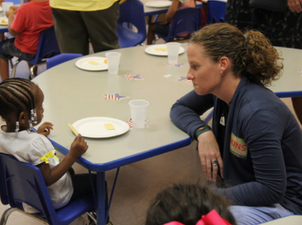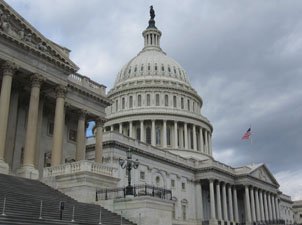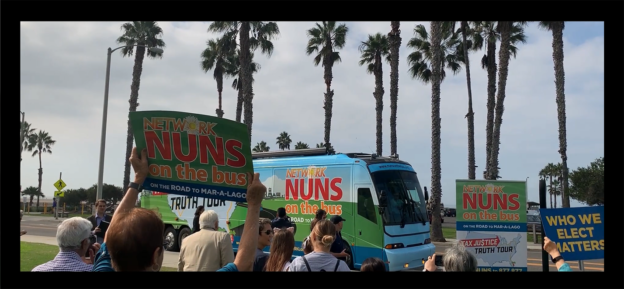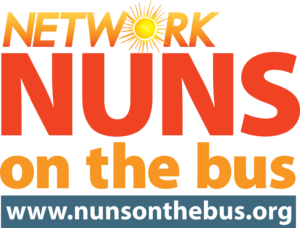
Faces of our Spirit-Filled Network: Sister Erin Zubal
Sister Erin Zubal
June 4, 2018
How did you first learn about NETWORK?
I learned about NETWORK from the Ursuline Sisters of Cleveland Social Justice Office when I first entered the community. NETWORK has informed and educated me on many social justice issues, which in turn has empowered me to do advocacy work.
What inspired you to get involved and join NETWORK?
I was inspired to take action with Nuns on the Bus in 2016. The goal of the trip was “to bring a politics of inclusion to divided places, change the conversation to mending the vast economic and social divides in our country, and counter political incivility with a message of inclusion.” Our world is in great need of this and I believe it is important to advocate for systemic change that seeks to address the needs of our brothers and sisters who are underserved. What better way to do this than travel the country to listen to the realities and lived experiences of people in our own communities—and then take those stories to our elected officials and encourage them to legislate for the common good.
What issue area(s) are you most passionate about?
Housing, healthcare and advocating for a faithful budget.
How does your faith inspire you to work for justice?
My faith has deeply inspired my work for peace and justice. As an Ursuline Sister of Cleveland, the story and legacy of martyrs Dorothy Kazel, Ita Ford, Maura Clarke and Jean Donovan have had a tremendous impact on my call to work for systemic change in our world. Even though I was not yet born when the women were killed, their history and legacy shared with me by my sisters has formed and shaped me as a woman religious. We must continue the work of those who have gone before us—and be faithful to the call as women of faith, committed to contemplation, justice and compassion in all we do.
Is there any quote that motivates or nourishes you that you would like to share?
“If you have come here to help me you are wasting your time, but if you have come because your liberation is bound up with mine, then let us work together.” Lilla Watson
What social movement has inspired you?
The youth of our world who are standing up and allowing their voices to be heard on critical issues. I am so inspired and filled with hope witnessing the good work of the next generation.
Erin Zubal is an Ursuline Sister of Cleveland. She currently serves as Guidance Counselor at Cleveland Central Catholic High School in Cleveland, Ohio.

















 e White House on the idea of a summit on the wealth gap. We still intend to meet our goal of 10,000 signatures on the petition, and we will deliver all of them in future meetings, as we continue to educate elected officials as well as the public on the causes and consequences of the wealth gap in our country, and advocate for responses.
e White House on the idea of a summit on the wealth gap. We still intend to meet our goal of 10,000 signatures on the petition, and we will deliver all of them in future meetings, as we continue to educate elected officials as well as the public on the causes and consequences of the wealth gap in our country, and advocate for responses.